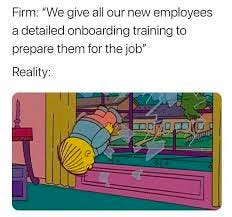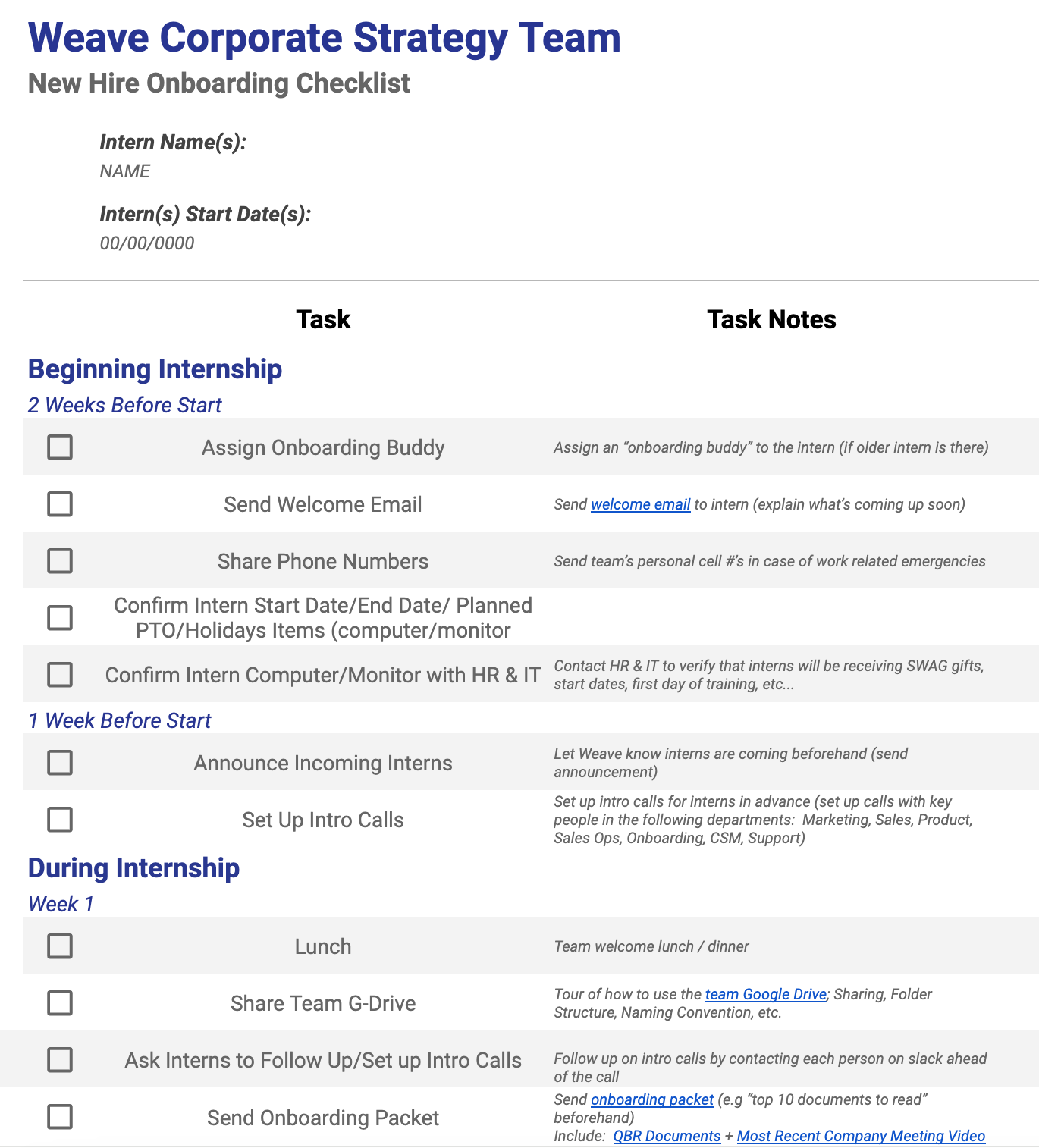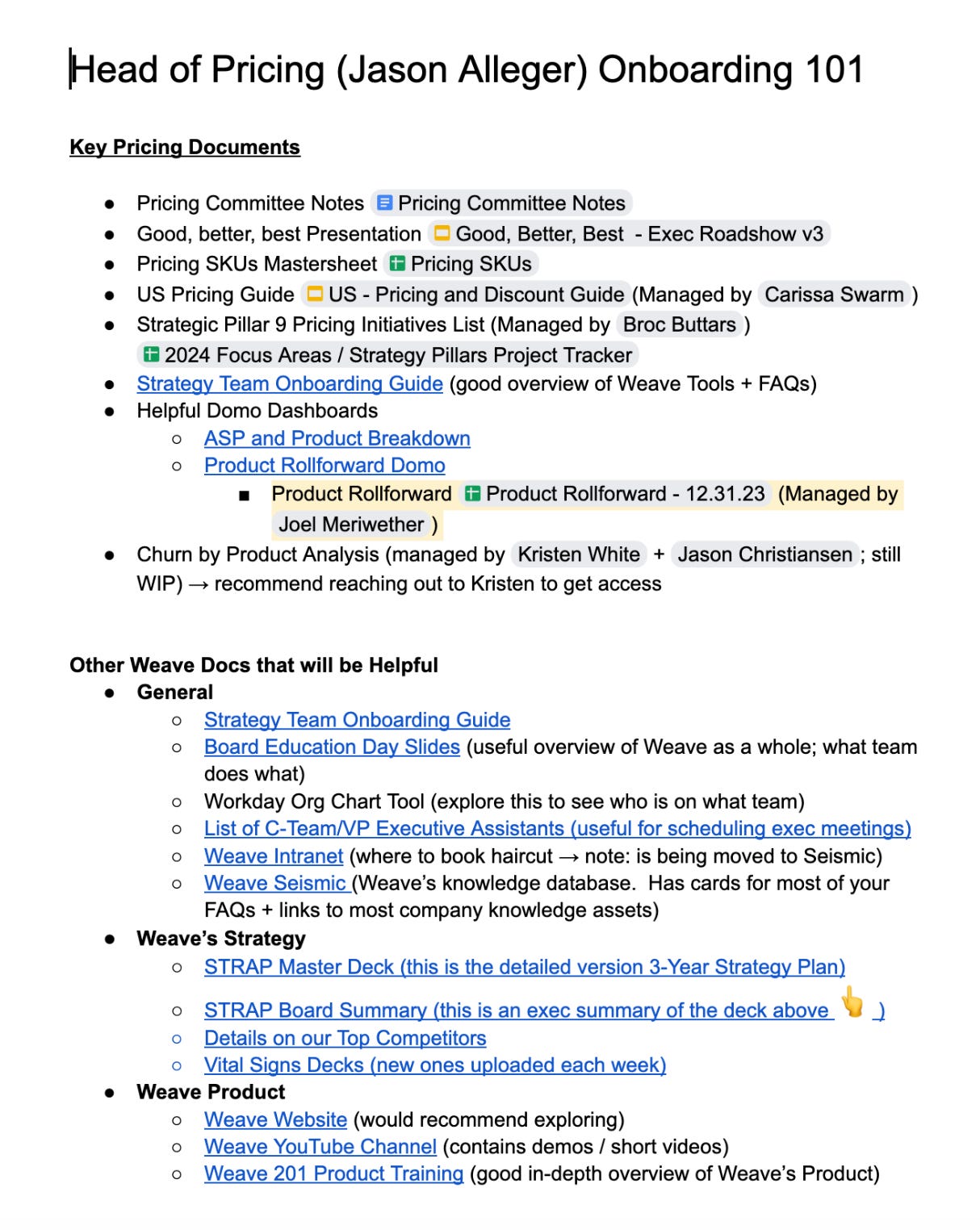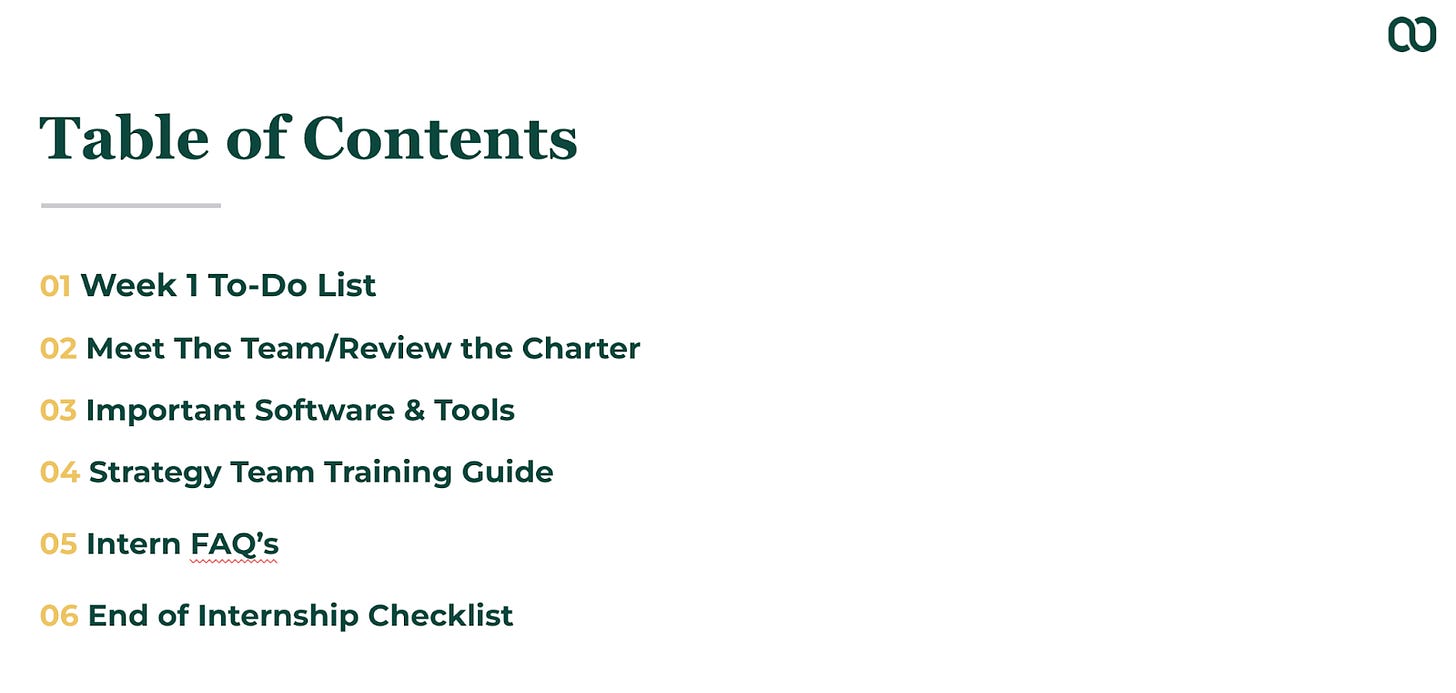Most of you know that a few weeks ago Jason made the leap to work with me at Weave. It’s been a blast so far (and still a little surreal to be working together full-time in addition to writing “Unwritten” together).

Getting a new team member is always fun (especially when it’s one of your good friends). As you can imagine, I’ve felt a little additional pressure to make sure that Jason’s first few weeks at Weave are great. Making sure a new co-worker is onboarded / brought up to speed ASAP is also something that can (and should) take a lot of work and prep, and this topic has been very top of mind for me over the past month.
I wanted to share a few tips that I’ve found on how to give a “world-class” onboarding experience to a new hire joining your team. This is something most people think they’ve got covered but are actually kinda terrible at. The general onboarding experience for most new employees usually looks something like this…

With further ado, here’s my (unsolicited) advice on how to onboard a new team member…
Tip #1: Have a Clear Onboarding Plan
The overall theme here = Prep in Advance. No new hire should ever feel like you’re figuring out how to bring them up to speed on the fly. A good onboarding experience (like anything else that’s high quality) needs some significant work up front, so be prepared to put in the work.
Figure out everything that needs to happen for your new co-worker in the first month and then make a simple checklist so that you don’t forget everything. Here’s an example of what I do for my interns here at Weave:

Note: This 👆 is just a screenshot. My full onboarding checklist has ~60 tasks. The point is to be as detailed as possible. Your new hire will appreciate it and feel like you’re invested in making sure they’re successful
This list should include things like:
- List of things to share/give them access to (ex: Key Docs, G-Drives, Tools they need access to, etc…)
- Introductions to key people
- Invite them to key meetings / Slack channels
- Give them everyone on the team’s contact info (ex: Cell #’s)
- List of trainings they should complete
- Setting up a welcome lunch
- Setting up 1:1’s,
- Etc…
One of the best ways to create this checklist/onboarding plan is to sit down with the rest of your team and list out everything that you wish someone had shared with you / done for you in your first 3-4 weeks on the job. Then just put it in a simple doc!
Pro Tip: Share this checklist with your new hire. That way they know what they should be getting from you (and can help remind you of things they need)
Tip #2: Send your New Hire a “Job Crash Course” Memo
Think of this as a short 1-pager with links to all the key info they’ll need to start their job on day 1 (ex: key people to meet, links to key documents, a list of key meetings they should attend, etc…)
Here’s an example of the one I put together for Jason:

Notice that this doesn’t have to be long or complicated! This info literally fits onto a single page but has all the key links they’ll need to get started. (Jason said this was enormously helpful in his first few weeks).
Bonus Points: Put together an even more extensive Onboarding Packet that includes details on everything from how to log in time, FAQs that other new hires have asked in the past, to tips/tricks that other team members have found. My interns have built a deck (called the “Strategy Team Onboarding Guide”) that they share with each new intern the first day they join. This is a living document and one that constantly gets updated with the latest/greatest tips/tricks/info.
Here’s a short overview of what it contains.

Tip #3: Assign an “Onboarding Buddy”
Choose someone on your team to be the new co-worker’s mentor / guide. This could be you or someone else on your team. The purpose of this role is to give the new hire someone they can go to with any questions they have in their first few weeks.
I actually highly recommend this person NOT be the hiring manager / boss. Many people are hesitant to ask “dumb” questions (ex: “how do I log my time card?” or “how do I get the printer to work?”) to their boss. It’s a lot safer to have a colleague who you don’t report to be the source of this key intel.
When I worked in consulting they always assigned someone who was ~2-3 years your senior as your designated “onboarding buddy”. It was so nice to have someone to go to for all the random questions I had. It was like a built-in support network.
Tip #4: Spread the News About Your New Hire
Let everyone know your new team member is coming (before they even have their Day 1)! Everyone who will be working with this person should know who is joining your team, what their background is, and what they’ll be owning / working on.
This can be as simple as sending out a brief email (or Slack message) that looks something like this:

Pro Tip 1: When sending this out link to their resume / LinkedIn + explain if there will be any changes as a result of them joining the org.
Pro Tip 2: Buy some cookies and put them on their desk, and in your message let the team know there are cookies there. It’s a good excuse to walk over and meet them.
Encourage people to send a welcome message to the new hire during their first 1-2 days on the job. The worst thing that can happen is for the new hire to show up and hear crickets from the company. You don’t want them wondering “does anyone even know I just joined?”
Instead, you want them to feel like everyone knows they’re coming and is thrilled that they’re finally here. It should feel like Harry Potter finally coming to Hogwarts.
Tip #5: Schedule a Regular 1:1
You want to get dedicated time during the week to answer their questions and make sure they’ve got everything they need. Get this on the calendar ASAP and make it a recurring meeting (at least for the first ~3-4 weeks).
Things I would spend your 1:1’s doing
- Getting them up and running on their projects (ex: getting them the data, introduction, background, etc. they need to be successful. Help them put together a first plan of attack if necessary)
- Help them understand who the key people at the company are (do an org chart walk-through highlighting the main folks they need to know about / work with)
- Help them understand the company’s strategy (for example: during his first week, Jason and I booked 1 hour dedicated solely to me explaining the background, logic, and future of Weave’s overall company strategy)
Pro Tip: You may want to book at least an hour for the first meeting (as you’ll have a lot to cover). You also probably want to meet more than once during the first week or so. You can go to just 1X a week after that.
Tip #6: Have a Meaningful First Project Lined Up
People get antsy when they have to sit on their hands for too long. Do your new co-worker a favor and get their first project figured out well in advance of them showing up
The worst experience: Showing up to a job, asking what you’re supposed to start working on, and then get some version of “We haven’t quite figured that out. Can I get back to you later?”
The ideal experience: Show up on Day 1 and be given a clear objective + the necessary data/tools to do it + a general list of next steps / due dates + an understanding of what impact it will drive.
Tip #7: Roll Out the Red Carpet
This one is probably obvious, but make your new teammate feel like you’re genuinely thrilled that they’re there. A few nice touches I’ve seen done in the past:
- Have a welcome gift at their desk waiting for them (ex: some cool company SWAG)
- Take them on a personal tour of the workplace (show them where all the best things are, including secret snack stashes, good rooms to take calls in, etc..)
- Schedule a welcome lunch with the rest of the team
- Spend your first team huddle doing intros (make sure everyone gets to know them)
- Send them the documents + meeting invites (listed above)
- Ask them to bring their spouse/kids to work so you can meet them as well
The key point is to make your new colleague feel like working with you and your team is the best choice they’ve ever made.

Last Note:
If you’re looking for some more content on “how to successfully onboard a new hire” I’d recommend checking out out this article from Harvard Business Review (HBR)


